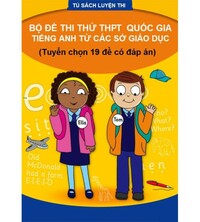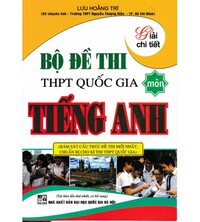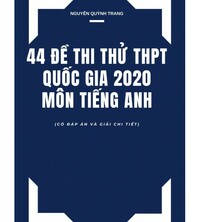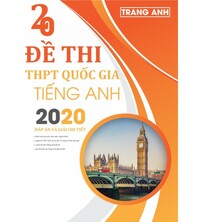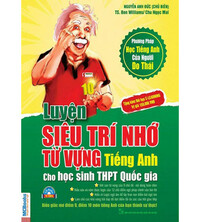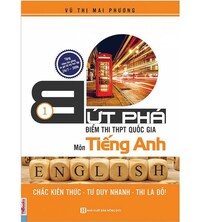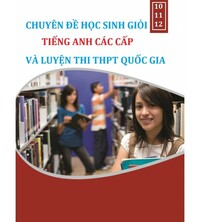Đề ôn thi TPHT Quốc gia môn tiếng Anh
Tìm Đáp Án xin giới thiệu đến các bạn Đề thi thử THPT Quốc gia môn tiếng Anh năm 2017 trường THPT chuyên Trần Phú, Hải Phòng có đáp án (lần 2) do Tìm Đáp Án sưu tầm và đăng tải nhằm giúp các bạn bổ sung vào quỹ ôn tập, chuẩn bị tốt nhất cho kì thi quan trọng sắp diễn ra. Chúc các bạn thi tốt.
Đề thi thử THPT Quốc gia môn tiếng Anh năm 2017 trường THPT Quốc Tế Việt Nam, Hà Nội có đáp án
Đề thi thử THPT Quốc gia môn tiếng Anh năm 2017 trường THPT Văn Lang, Hà Nội có đáp án
Đề thi thử THPT Quốc gia môn tiếng Anh năm 2017 trường THPT Việt Đức, Hà Nội có đáp án
| SỞ GIÁO DỤC VÀ ĐÀO TẠO HẢI PHÒNG TRƯỜNG THPT CHUYÊN TRẦN PHÚ | KỲ THI THỬ THPTQG 2017 LẦN 02 MÔN: TIẾNG ANH |
Read the following passage and mark the letter A, B, C, or D to indicate the correct word or phrase that best fits each of the numbered blanks from 1 to 5.
A surprising number of popular spectator sports, for example football or baseball, (1)________ in Europe or the USA in the nineteenth century. This did not happen by chance. It was the (2)____________ of changes in the way people lived in those places at that time. Until then, more people lived In the country than in towns. They worked in small groups and had no regular time off. All this changed with the growth of factories and industry in the nineteenth century, first in Europe and (3)__________. In the USA. For the first time, most people began to live in towns, and they found themselves with regular free time. They had more leisure time than ever before. This resulted in the need for organized entertainment. Suitable games developed or were invented, typically team games, in which the crowd could (4)___________ sides and become involved. This gave people some of the entertainment they need in their free time. The recent explosion in TV, with the introduction of satellite and cable channels, has caused an increase in (5)_____________ for sports as entertainment. The money TV has broughtto games such as football, tennis and baseball means that spectator sports will certainly go on playing an important part in our lives.
Question 1: A. started B. stemmed C. appeared D. came
Question 2: A. result B. cause C. reason D. effect
Question 3: A. lately B. next C. second D. then
Question 4: A. choose B. take C. select D. decide
Question 5: A. requirement B. need C. request D. demand
Read the following passage and mark the letter A, B, C, or D to indicate the correct answer to each of the questions.
We find that bright children are rarely held back by mixed-ability teaching. On the contrary, both their knowledge and experience are enriched. We feel that there are many disadvantages in streaming pupils. It does not take into account the fact that children
develop at different rates. It can have a bad effect on both the bright and the not-so-bright child. After all, it can be quite discouraging to be at the bottom of the top grade!
Besides, it is rather unreal to grade people just according to their intellectual ability. This is only one aspect of their total personality. We are concerned to develop the abilities of all our pupils to the full, not just their academic ability. We also value personal qualities and social skills, and we find that mixed-ability teaching contributes to all these aspects of learning.
In our classroom, we work in various ways. The pupils often work in groups; this gives them the opportunity to learn to co-operate, to share, and to develop leadership skills. They also learn how to cope with the personal problems as well as learning how to think, to make decisions, to analyze and evaluate, to communicate effectively. The pupils learn from each other as well as from the teachers. Sometimes the pupils work in pairs; sometimes the work on individual tasks and assignments, they can do this at their own speed. They also have some formal class teaching when this is appropriate. We encourage our pupils to use the library, and we teach them the skills they need in order to do this effectively. An advanced pupil can do advanced works; it does not matter what age the child is. We expect our pupils to do their best, not their least, and we give them every encouragement to attain this goal.
Question 6: The author's purpose of writing this passage is to________.
A. recommend pair work and group work classroom activities
B. emphasize the importance of appropriate formal classroom teaching
C. offer advice on the proper use of the school library
D. argue for teaching bright and not-so-bright pupils in the same class
Question 7: As it can be inferred from the passage, which of the following is an advantage of mixed-ability teaching?
A. Pupils as individuals always have the opportunities to work on their own.
B. Pupils can be hindered from an all-round development.
C. Formal class teaching is the important way to give the pupils essential skills such as those to be used in the library.
D. A pupil can be at the bottom of a class.
Question 8: The phrase "held back" in paragraph 1 means_________.
A. forced to study in lower classes B. prevented from advancing
C. made to lag behind D. made to remain in the same classes
Question 9: Which of the following statements can best summarize the main idea of the passage?
A. Various ways of teaching should be encouraged in class.
B. The aim of education is to find out how to teach the bright and not-so-bright pupils.
C. Bright children do benefit from mixed-class teaching.
D. Children, in general, develop at different rates.
Question 10: In paragraph 1, "streaming pupils"____________.
A. will help the pupils learn best
B. is quite discouraging
C. is the act of putting pupils into classes according to their academic abilities
D. aims at enriching both their knowledge and experience
Question 11: In the passage, the author's attitude towards "mixed-ability teaching" is________.
A. questioning B. objective C. critical D. approving
Question 12: According to the passage, which of the following is NOT true?
A. Pupils cannot develop in the best way if they are streamed into classes of different intellectual abilities.
B. There is no fixed method in teaching pupils to develop themselves to the full.
C. It's not good for a bright child to find out that he performs worst in a mixed-ability class.
D. Development of pupils as individuals is not the aim of group work.
Mark the letter A, B, C, or D to indicate the correct answer to each of the following questions.
Question 13: Make sure you________ up the data on your computer, because you might get a virus.
A. back B. store C. save D. copy
Question 14: That's no excuse! You know you__________ this report by today.
A. can't have finished B. must have finished
C. may not have finished D. should have finished
Question 15: Indiana University, one of the largest in the nation, is located in a___________ town.
A. small beautiful Midwestern B. beautiful Midwestern small
C. Midwestern beautiful small D. beautiful small Midwestern
Question 16: I was tired when you saw me because I________ for the exam.
A. studied B. have been studying C. had been studying D. would study
Question 17: The__________ on the kitchen table.
A. grocery is B. grocery are C. groceries is D. groceries are
Question 18: This winter wasn't_________ as difficult as last winter.
A. almost B. nearly C. closely D. just
Question 19:_________ we understand his reasons, we cannot accept his behaviour.
A. As if B. What if C. Even if D. Only if
Question 20: His speech was careful and_________, but his words seemed to make no sense.
A. distinctive B. distinction C. distinct D. distinguish
Question 21: Tom: "Is there anything interesting_________ the paper today?"
Anna: "Well, there's an unusual picture_________ the back page."
A. on – on B. in – on C. in – in D. on - in
Question 22: Mrs. Davies asked me to tell you that she would like___________ by Friday at the latest.
A. the orders sent B. sending the orders C. sent the orders D. that you sent
Question 23: It's_________ unique opportunity to see African wildlife in its natural environment.
A. the B. no article C. a D. an
Question 24: The hotel was terrible, but the wonderful beach___________ our disappointment.
A. came down with B. made up for C. got through to D. faced up to
Question 25: The book would have been perfect__________ the ending.
A. it hadn't been for B. hadn't it been for C. it had not been for D. had it not been for
Mark the letter A, B, C, or D to indicate the most suitable response to complete each of the following exchanges.
Question 26: Cynthia: "Hi, Victor. Do you think it's possible for us to have a talk sometime today?" Victor: "I'd love to, but______."
A. it's pretty tight schedule today. B. I'm pretty tight schedule today.
C. it has a pretty tight schedule today. D. I've got a pretty tight schedule today.
Question 27: John: "What time did the meeting end?'' Laura: "_________________."
A. As soon as possible. B. For half an hour. C. In a minute. D. Just before lunch.
Mark the letter A, B, C, or D to indicate the word or phrase CLOSEST in meaning to the bold and underlined part in each of the following questions.
Question 28: We decided to pay for the car on the installment plan.
A. cash and carry B. monthly payment C. credit card D. piece by piece
Question 29: I told you clearly and definitely not to write your answers in pencil, Smith!
A. altogether B. specifically C. thoroughly D. considerably
Mark the letter A, B, C, or D to indicate the word or phrase OPPOSITE in meaning to the bold and underlined part in each of the following questions.
Question 30: These were the people who advocated using force to stop school violence.
A. strongly condemned B. publicly said C. openly criticized D. publicly supported
Question 31: Names of the people in the book were changed to preserve anonymity.
A. reveal B. cover C. presume D. conserve
